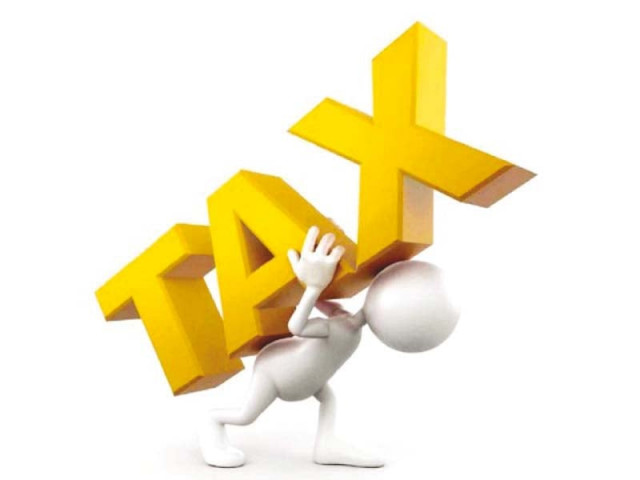The issue of withholding tax: ‘Shock therapy’ won’t fix taxation mess
Businesses, multinationals will keep on finding loopholes to avoid paying tax

Businesses, multinationals will keep on finding loopholes to avoid paying tax. CREATIVE COMMONS
A 1,700 square feet apartment facing the sea - for which there were few buyers 15 years ago at a price-tag of Rs1 million - is now being sold between Rs11 to Rs15 million or even more.
Poor law and order situation and fear of political extortionists have not deterred investments running into the billions from being pumped into the property sector. Realtors would like to say “it’s a risk-free, high-reward investment”.
But when it comes to recording that transaction, all the hype and praise is swept aside as people - despite the huge capital gains - don’t want to pay tax on actual appreciated values. Instead, what is used to calculate price is historical valuation of the local deputy commissioner’s office.
Hence, the tax paid is calculated after the house - being sold for Rs50 million - is valued at just Rs5 million or less.
“Whenever any government tries to fix this problem, it faces a lot of resistance from various pressure groups,” says former Federal Board of Revenue (FBR) chairman Abdullah Yusuf who initiated tax reforms under former president Pervez Musharraf.
“And having the right information is the key to solving the problem. We need to have real information in FBR’s data warehouse. To apply the tax, we need to know who is spending how much on real estate, cars and travelling abroad. Once that is done, you can pin down the tax evader.”
Read: Govt halves withholding tax rate
At less than 10%, Pakistan’s tax-to-GDP ratio is one of the lowest even among developing countries, stalling public spending on welfare projects and pushing the government to borrow more each year to finance debt repayments and defence expenditure.
In this backdrop, imposition of withholding tax (WHT) on all banking transactions exceeding Rs50,000 has gained importance as a step towards documenting the economy.
Those who don’t file income tax returns would have to pay 0.3% on all banking instruments. The initiative is basically meant to encourage traders, businessmen and professionals to disclose their incomes, officials say.
But would this work?
Economist Dr Asad Sayeed remains sceptical. “To the extent that government is trying to bring people under the tax net, it’s a good step and I am not concerned about prices going up either. But people have the option to withdraw money from banks and carry out transactions in cash.”
Similar attempts made in the past to broaden the tax base have hit the wall. Memories of debates, protests and criticism of futile implementation of Reformed General Sales Tax (RGST) or Value-added Tax (VAT) during the tenure of Pakistan Peoples Party government are still fresh.
“That tax on various stages of supply chain would have also served the purpose of helping FBR determine incomes. But that was opposed by PML-N and MQM because it was hurting their vote bank at the time,” Dr Sayeed says.
Leakages, which exist in the taxation system, would have to be plugged for any substantial change, he says. “Doctors, lawyers and consultants don’t pay a rupee. What is being done to determine their incomes?”

However, on the fear of businessmen pulling out cash from the banking system to pump in the informal cash-based economy, a senior banker says that’s improbable.
“Let me assure you they won’t pull out a paisa because of this tax,” said Ali Raza, the former president of National Bank of Pakistan. “They need banks to pay each other. The sort of businesses they do, it’s impractical to carry huge amounts of cash in bags all the time.”
Read: President promulgates ordinance to reduce withholding tax rate to 0.3%
Finance Minister Ishaq Dar has done the right thing by holding his ground, he says. A WHT of 0.3% is very small relative to their turnover, he adds.
But he also insists that ‘shock therapy’ won’t fix the entire taxation mess. “This exercise needs to be calibrated in a way that it also offers incentive to pay tax, he said, citing case of Hong Kong where tax rate was slashed drastically to encourage documentation.
General distrust of the tax collectors and wide spread political corruption has also left public disgruntled, industry people say.
On the other hand, businesses, even multinational corporations, keep on finding loopholes to avoid paying tax.
“Ever wonder why soft drinks you buy in rural parts taste so stale? Well, that’s because bottlers use lesser quantity of concentrate (raw material for making aerated drinks). This is done to save money on taxes,” said a businessman.
The writer is a staff correspondent
Published in The Express Tribune, July 13th, 2015.
Like Business on Facebook, follow @TribuneBiz on Twitter to stay informed and join in the conversation.


















COMMENTS
Comments are moderated and generally will be posted if they are on-topic and not abusive.
For more information, please see our Comments FAQ